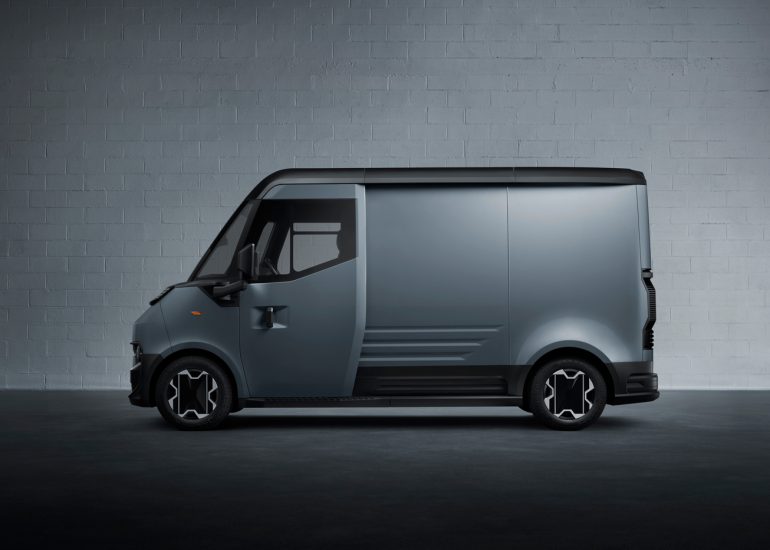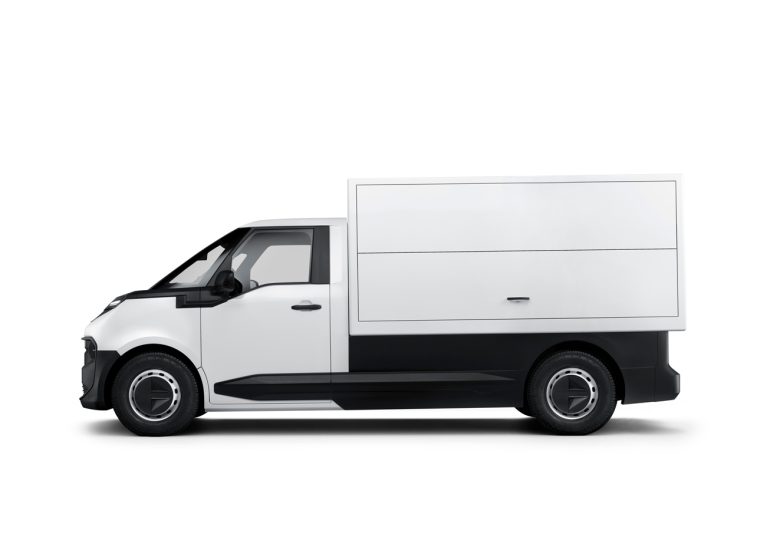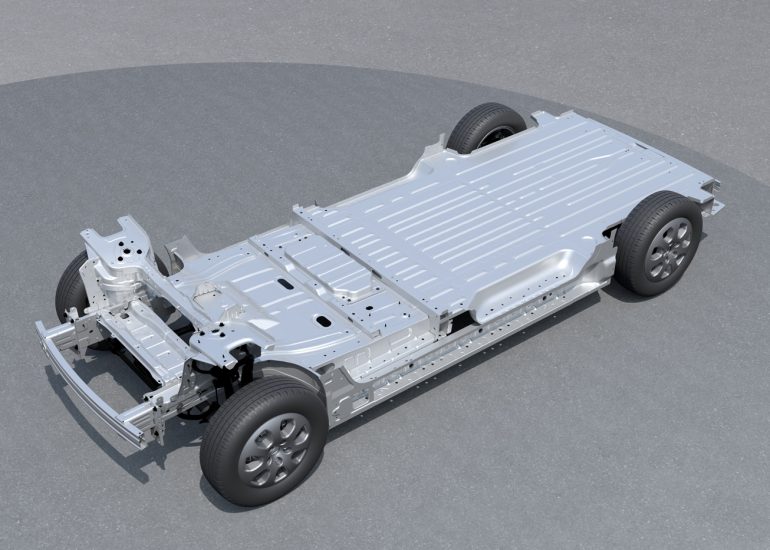An all-new electric van range is revealed
An all-new electric van range is revealed
It’s not every day that we get to see an all-new (yes, really all-new) electric van range being revealed. But that’s exactly what transpired at the end of January 2025, when we jetted to Paris for the unveiling of a three-model range by Flexis.
This new entrant into the commercial vehicle (CV) market is focusing on urban logistics and, for the moment, its attention is firmly on Europe.
New era for urban logistics
Flexis is a joint venture established by Renault Group, Volvo Group, and CMA CGM. These companies have invested significantly in the project: Renault Group and Volvo Group each contributed €300 million, while CMA CGM has invested €120 million. Other undisclosed investors have also participated, bringing total investment in the company to €1 billion. To date, €350 million has been spent on research and development.
Rather curiously, Flexis will be both a Renault competitor and supplier in the future. This is because its electric vans (which are competitors to Renault’s existing vans) will be sold with Flexis badging. However, they will also be badged as Renault models and sold by Renault (yes, we concur… this is somewhat “interesting”).
During the reveal in Villebon, just outside Paris, Flexis executives told us that the company’s vans are vastly superior to Renault’s electric vans because “the Flexis vans were conceived as electric vehicles (EVs) from day one”. In other words, they are not diesel vehicles that have been converted into EVs.
Flexis has already secured 10 letters of intent, confirming demand for 15,000 vehicles over the next three years. These letters have been signed by logistics giants such as Colis Privé (France), HIVED (UK), and DB Schenker (Germany).
Built for urban efficiency
The Step-in Van, Panel Van, and Cargo Van are all built on a shared EV-native skateboard platform featuring Software-Defined Vehicle (SDV) architecture, developed in partnership with Ampere, a subsidiary of Renault Group. According to Flexis executives, this shared platform enhances efficiency, connectivity, and modularity.
While the Panel Van and Cargo Van look impressive, the Step-In Van is truly innovative. For instance, it features front sliding doors and a rear shutter door for loading optimisation (a claimed first for the European market). The van features easy access between the cockpit and cargo areas with 1.9-m height clearance, allowing drivers to comfortably walk upright throughout the vehicle. It has a payload of up to one tonne, versus 1.2 tonnes for the Panel Van and 1.5 tonnes for the Cargo Van.
Production is set to commence in 2026 at Renault’s Sandouville plant in France. The Flexis vans will be offered through direct sales to logistics providers and fleet managers. Additionally, as already mentioned, the vehicles will be supplied to Renault Group and Renault Trucks, which will distribute them under their own brands through their established sales networks.





Two battery options
One of the standout features of the Flexis vans is their 800V electrical architecture, allowing for DC fast charging. While the company has not disclosed specific battery chemistries (we know there are two) or sourcing details, it has confirmed two battery options: one with a range of up to 320km per charge and another with a range of up to 460km.
Flexis executives highlight that the batteries can be charged within just 18 minutes, significantly reducing downtime for logistics operations. Additionally, city navigation is made easier by an exceptional turning circle, comparable to that of a Volkswagen Polo. This makes tight urban spaces and parallel parking much easier for drivers.
Company development
Flexis currently has 100 employees, initially drawn from Volvo and Renault. However, the company is now attracting talent from across the CV industry and plans to expand to 200 employees by the end of 2025.
Although the initial focus is on Europe, CEO Philippe Divry stated: “The platform can evolve to suit the needs of other continents, and so we are ready for that. But first, we want to ensure that we’re well on track in Europe.” This suggests that future expansion beyond the region is on the horizon.
Pay-per-use model and fleet management services
In addition to selling vehicles outright, Flexis is introducing a “pay-per-use” model, which could provide a more flexible option for fleet operators.
Flexis is also rolling out a comprehensive suite of fleet management solutions to help logistics operators transition to electric fleets. These services focus on uptime management, operational efficiencies, management of the energy and charging infrastructure, and financial services.
These will be delivered via a central digital platform for clients, existing Renault and Volvo service networks across Europe, and a dedicated Flexis customer operational centre, which will provide real-time fleet monitoring and diagnostics.
Future fantastic?
It’s going to be interesting to watch the development of Flexis. Its speed to market is impressive; the company was launched in March 2024, and it already has three vans in the pipeline – with production starting next year. Furthermore, a total of 20 prototypes have been built and tested, accumulating more than 9,000 hours of driving. Flexis is clearly going places.
As we all know, vans are the sweet spot when it comes to electrification – and Divry and his team seem determined to maximise this potential. “Our vision is to accelerate the energy transition, but to do so profitably. We are the most ambitious and credible EV company in Europe,” he told us during the reveal.
As the company moves into its industrialisation and pre-commercialisation phase, all eyes will be on its 2026 production launch. With strong backing from major logistics providers and a clear focus on innovation, Flexis may well achieve its extremely optimistic goal of redefining the future of last-mile delivery in European cities and beyond.
Published by
Charleen Clarke
focusmagsa








